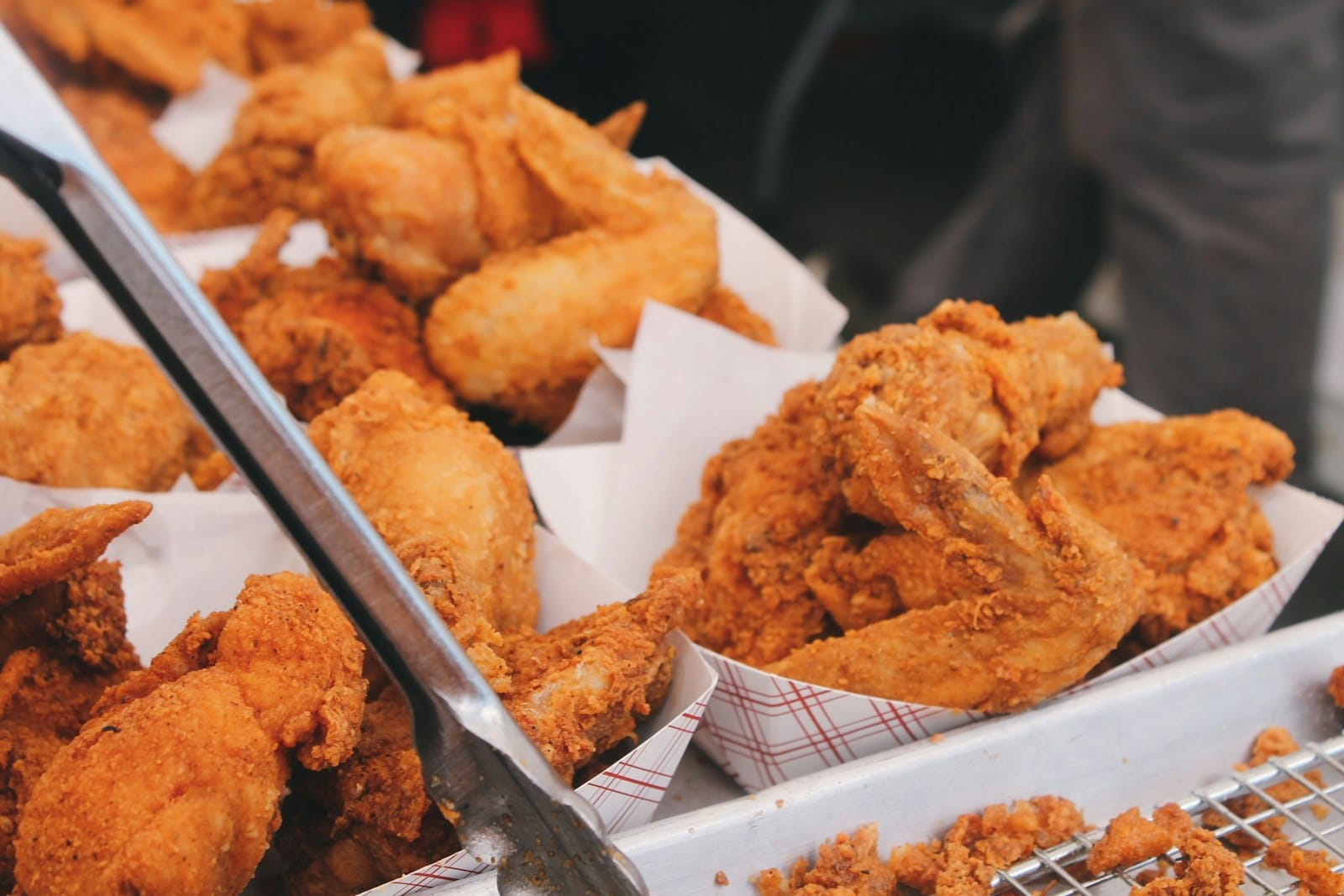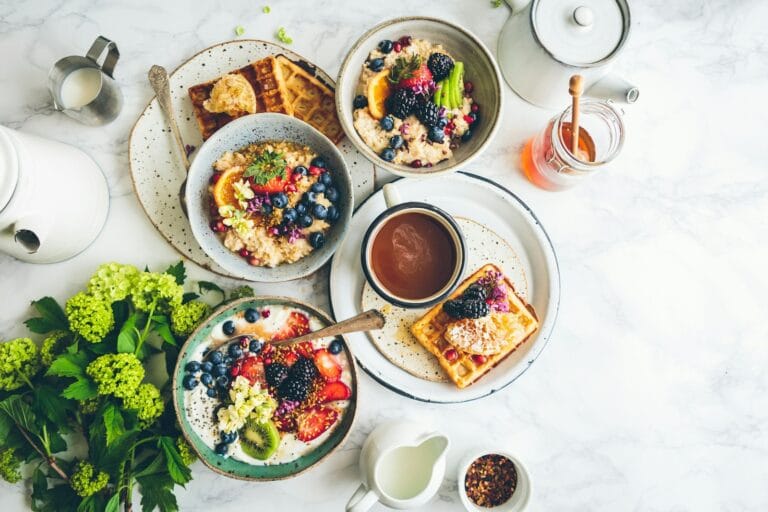Foods to Avoid When Trying to Get Pregnant: Key Dietary Restrictions for Conception Success
If you’re hoping to get pregnant, what you eat can make a real difference. Some foods can lower your chances of conceiving, like processed meats, trans fats (think baked goods), ultra-processed carbs, sugary drinks, and fried stuff. Making better food choices now could boost your reproductive health and improve your odds.
Of course, it’s not just about food. Stress, toxic situations, and your mindset all play a part. Even small changes can help. Cutting back on trans fats by just 2% a day, for example, has been shown to help with conception.
Swapping out less helpful foods for fertility-friendly ones is a good move. Pair these changes with other healthy habits, and you might just create the best environment for conception.
Foods and Ingredients That Negatively Affect Fertility
What you eat can affect your chances of getting pregnant. Studies have found that some foods can lower fertility for men and women by throwing off hormones and causing inflammation.
Trans Fats and Processed Foods
Trans fats are among the worst for fertility. You’ll find them in:
- Fast food, especially fried stuff
- Packaged snacks
- Some margarines
- Processed baked treats
Eating more trans fats is linked to a much higher risk of ovulatory infertility. Women who eat more of these fats could see up to a 73% higher risk of fertility issues.
Processed foods are another problem. They’re often loaded with preservatives and chemicals that can mess with your hormones. Plus, they usually lack the nutrients your body needs.
For men, eating a lot of processed foods can lower sperm quality and count. Cutting out these foods helps both partners.

Saturated Fats and Red Meat
Eating a lot of saturated fats from red and processed meats isn’t great for fertility. Too much saturated fat can:
- Lower egg quality for women
- Reduce sperm concentration for men
- Increase inflammation
Red meat, especially processed types like bacon and sausage, is high in saturated fat. Some of these foods also have added hormones that can interfere with your body’s balance.
Try swapping out red meat for plant proteins or fatty fish now and then. Studies show women who eat more plant protein and less animal protein have fewer ovulation issues.
Aim to keep saturated fat to under 10% of your daily calories for better fertility.
Refined Carbohydrates and Added Sugar
Refined carbs and added sugars can mess with your fertility by affecting blood sugar and insulin. These include:
- White bread and pasta
- Sugary cereals
- Candy and sweets
- Sodas and fruit juice
- Pastries and cakes
These foods spike your blood sugar fast, which can throw off your hormones. For women with PCOS, a common fertility issue, these foods are especially tough on the body.
Sugary drinks deserve a special mention. One study with over 3,000 women and 1,000 men found that drinking seven or more sugary drinks a week was linked to lower fertility in both partners.
Switching to whole grains, veggies, and fruit can help keep your blood sugar steady and support fertility.

Beverages and Substances That Can Impair Conception
What you drink matters too. Some drinks contain things that can mess with your reproductive health and make it harder to get pregnant.
Alcohol and Alcoholic Drinks
Alcohol can have a big impact on fertility for both men and women. If you’re trying to conceive, it’s usually best to skip alcohol or keep it to a minimum.
For women, alcohol can disrupt hormones and mess with ovulation. Even moderate drinking may lower your chances each month. Alcohol can also hurt egg quality and make implantation harder.
For men, drinking lowers testosterone and can reduce sperm count and quality. The more you drink, the worse it gets.
If you’re going through fertility treatments like IVF, avoiding alcohol is even more important. Most fertility experts suggest cutting out alcohol at least three months before trying to conceive.
Caffeine and Sugary Drinks
High caffeine intake might make it harder to get pregnant. Try to keep caffeine under 200mg a day (about one 12-ounce coffee).
Coffee isn’t the only thing to watch. Tea, energy drinks, and some sodas have caffeine too. Too much has been linked to longer time to conception and higher miscarriage risk.
Sugary drinks are another issue. Research with thousands of participants found that regular sugary drinks (seven or more a week) were tied to lower fertility in both men and women.
Sodas are especially problematic because of high-fructose corn syrup, which can mess with your hormones. Some sodas have other additives that aren’t great for reproductive health.
Artificial Sweeteners and Diet Beverages
Diet drinks might seem like a good swap, but some artificial sweeteners could affect fertility.
The research is still coming in, but some studies say artificial sweeteners might disrupt hormones. They can also affect how your body handles sugar, which could lead to insulin resistance and mess with ovulation.
Diet sodas and other artificially sweetened drinks often have chemicals your body needs to process. That’s more work for your body when you’re trying to get pregnant.
Water is always a safe bet. If you want something different, try adding fruit to your water, or go for caffeine-free herbal teas.
Environmental and Lifestyle Factors Influencing Fertility
Getting pregnant isn’t just about what you eat. Your environment and habits matter a lot too.
High-Mercury Fish and Environmental Toxins
Mercury in some fish can be harmful for fertility. Fish like king mackerel, swordfish, shark, and tilefish have high mercury and could reduce fertility or affect a future baby.
Try to limit:
- Tuna (especially albacore)
- Marlin
- Orange roughy
Toxins in everyday items can also play a role. BPA, found in some plastics and can linings, can mess with hormones. Studies link BPA exposure to lower sperm quality and egg issues.
Safer options include:
- Using glass for food storage
- Not heating food in plastic
- Picking BPA-free products
- Filtering your water
Unpasteurized Dairy and Raw Foods
Raw or unpasteurized foods can be risky when you’re trying to conceive. Unpasteurized milk, cheese, and yogurt can carry harmful bacteria like Listeria, which can cause infections or complications.
Foods to skip:
- Soft cheeses made with unpasteurized milk (Brie, Camembert, blue cheese)
- Raw milk
- Fresh-squeezed juices that aren’t pasteurized
Deli meats and raw seafood are also risky. They can contain bacteria that might affect your vaginal health and make conception harder.
If you eat deli meats, heat them until they’re steaming hot. It’s best to avoid raw sushi, carpaccio, and other uncooked proteins while trying to get pregnant.

Lifestyle Risks: Smoking and Drug Use
Smoking really hurts fertility for both men and women. It damages eggs and sperm, and can bring menopause on earlier.
Recreational drugs and too much alcohol are also bad news for reproductive health. Even moderate drinking can make it harder to get pregnant.
Other factors that affect fertility:
- Being overweight or underweight
- Not getting enough sleep (aim for 7-8 hours)
- High stress
Managing stress with things like mindfulness or yoga can help balance hormones. Getting enough sleep helps regulate reproductive hormones. Keeping a healthy weight with good food and regular movement can boost your chances.
Dietary Patterns and Nutritional Choices for Preconception Health
Your eating habits before pregnancy matter for both your fertility and your future baby’s health. The foods you pick affect hormone levels, egg quality, and how ready your body is.
Low-Nutrient Diets and Inadequate Vitamins
A diet that’s low in key vitamins makes it harder to get pregnant. Processed foods, sugary drinks, and low-fiber meals can leave you with nutrient gaps.
Folic acid is especially important when you’re trying to conceive. You’ll need at least 400 mcg a day to help prevent birth defects. Many women start prenatal vitamins before pregnancy.
Other nutrients to focus on:
- Iron (to prevent anemia)
- Vitamin D (for hormone support)
- Omega-3 fats (reduce inflammation)
- Zinc (improves egg quality)
Eating low-fiber foods can slow digestion and mess with how your body handles hormones, which might make ovulation less regular.
Hormonal Imbalance and PCOS-Friendly Diet
Polycystic Ovarian Syndrome (PCOS) affects up to 10% of women and can make getting pregnant tough. Diet can help manage PCOS.
Women with PCOS often deal with insulin resistance, which leads to higher blood sugar and testosterone. This can stop ovulation.
A PCOS-friendly diet includes:
- Low-glycemic foods (to avoid blood sugar spikes)
- Healthy fats like avocado and olive oil
- High-fiber foods to slow digestion
- Anti-inflammatory foods like berries and greens
Cutting back on refined carbs and added sugars helps lower inflammation and support a healthy weight, which helps with hormone balance.
Plant-Based Versus Animal Protein Sources
The kind of protein you eat might affect fertility. Research suggests that more plant protein and less animal protein can help.
Plant proteins like beans, lentils, nuts, and seeds have antioxidants that help protect egg quality and support reproductive health.
If you eat animal proteins, go for:
- Fish rich in omega-3s (like salmon)
- Organic poultry
- Free-range eggs
Try to limit red meat to once or twice a week. Too much is linked to inflammation that can mess with conception.
Low-fat dairy might actually lower fertility, while moderate full-fat dairy could help. It’s a bit counterintuitive, but this seems to be the case for fertility.
Frequently Asked Questions
A lot of foods can affect your chances of getting pregnant. Here are some common questions about what to eat and avoid.
Which foods can negatively impact female fertility?
High-mercury fish like swordfish and shark can be harmful. These big fish have mercury levels that may affect your reproductive health.
Processed foods with artificial additives can mess with your hormones. This includes many packaged snacks and ready-made meals.
Too much caffeine might hurt your chances. Try to keep coffee and caffeinated drinks to one serving a day.
Are there specific foods that could hinder conception?
Fast food can make it harder to conceive. Research shows women who eat fast food often may take longer to get pregnant.
Sugary drinks affect both male and female fertility. Studies with thousands of women found that drinking seven or more sugary drinks a week might lower fertility.
Alcohol is best avoided when you’re trying to conceive. Even small amounts can lower your chances each month.
What dietary items should someone with PCOS avoid when trying to conceive?
Refined carbs can make PCOS symptoms worse. White bread, pasta, and sugary foods may increase insulin resistance.
Trans fats in some baked goods can increase inflammation and make PCOS worse.
Dairy can be a problem for some women with PCOS. If you notice it triggers symptoms, consider cutting back.
How do certain foods affect the probability of pregnancy after ovulation?
Foods high in saturated fat may lower implantation success by increasing inflammation.
Processed meats have preservatives that might hurt egg quality. This includes hot dogs, bacon, and some deli meats.
Low-fat dairy after ovulation might help, but full-fat dairy could have the opposite effect.
Can diet influence the speed of getting pregnant?
A poor diet can make it take longer to conceive. Some studies found women eating mostly fast food took almost twice as long to get pregnant.
Foods rich in antioxidants, like fruits, veggies, and whole grains, may help you conceive faster.
Healthy fats from nuts, seeds, and olive oil help balance hormones and support fertility.
What nutritional elements are advised against while attempting to conceive?
Taking too much vitamin A through supplements isn’t a great idea. It’s safer to get your vitamin A from beta-carotene, which you’ll find in veggies.
Artificial sweeteners are a bit controversial. Some research suggests they might mess with hormone balance, and there are hints they could lower fertility. Probably best not to overdo it.
Eating a lot of soy could also impact hormone levels. A little soy here and there is fine, but loading up on soy protein isn’t recommended.


